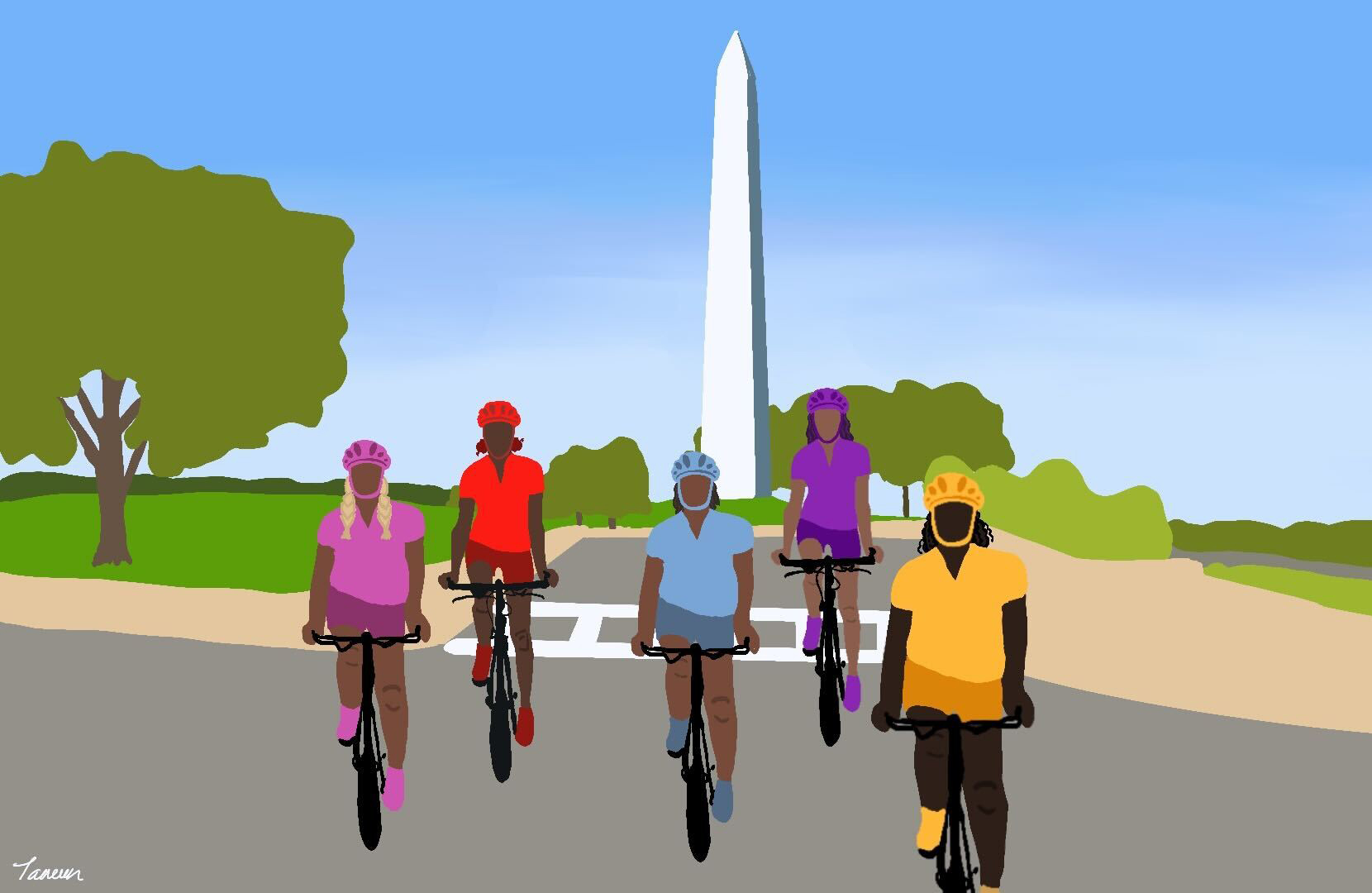When gas prices were ballooning about 10 years ago, Laurie Williams set out to navigate her Prince George’s County neighborhood without a car.
Williams grew up riding her bike around her home in Washington, D.C., but the hobby fell out of habit due to a limited biking infrastructure near her current home in Clinton, Maryland. When gas prices exceeded $4, she started to ride her bike around her neighborhood to offset the costs.
As she coped with the county’s meager cycling infrastructure, Williams also struggled to find a community of riders who shared her passion. Most people in the biking advertisements of 2011 were skinny, white people wearing spandex, she said. She rarely saw women of color being lauded as bikers.
It was this frustration that prompted Williams to become an early member of Black Women Bike D.C. Founded in 2011, Black Women Bike supports women and girls of all ages to ride their bikes for fun, health, wellness and transportation, Williams said. Over the last decade, the group has organized group rides, taught master classes in bike maintenance and safety and developed partnerships with other area cyclist organizations, all while empowering Black women across the DMV to ride confidently.
“We just wanted everybody to know that yes, Black people and Black women and girls do bike, and we wanted to give them a safe place to bike at,” Williams said. “Every month, I look forward to riding with them.”
Williams is now part of the organization’s leadership team and has helped the group’s following grow to more than Facebook 2,400 members. Black Women Bike is open to all women, but the group’s main focus is providing representation to women of color in the cycling community.
[Bike, Scoot, Skate: Micromobility at UMD]
Anica Allen joined Black Women Bike after she found a flyer about the group in her local bike shop.
“It sounds silly. You’re like, ‘Oh, man, I thought I was the only one,’” Allen said. “I mean, you know you’re not obviously the only one. But when you don’t see a whole lot of people that look like you, it kind of feels like, ‘Oh, cool. There’s a club for people like me.’”
The group started as a Twitter message between three friends in 2011, Allen said. Black Women Bike co-founder Veronica Davis was riding her bike to meet some friends for a movie. She passed through a predominantly Black housing complex and heard a young Black girl exclaim to her mother, “Mommy, mommy, there’s a Black lady on a bike!”
“I had the realization that I looked like her and she was very excited to see someone who looked like her riding a bike,” Davis told Momentum Magazine in 2012, shortly after the group’s founding.
Many programs that promote sustainable transportation options, such as biking, are not accessible to communities of color, Allen said. One event in the District called Bike to Work Day takes place every spring, but doesn’t always coincide with a morning commute. In Allen’s eyes, those types of events are geared toward workers who want to bike as a hobby, rather than those who bike to work out of necessity.
“Earlier than a lot of people often would get up for work, you will see people on bicycles,” Allen said. “We don’t often get seen, but there’s oftentimes lots of people of color riding bicycles, you just have to know when to look.”
The lack of a biking community for people of color has opened a door for Black Women Bike to teach members the basics of cycling. Efforts to promote safe cycling such as bike tune-up lessons and carefully crafted bike buying guides have boosted the group’s influence for beginner cyclists across the DMV.
[Bike Basics: A guide to biking at UMD]
These lessons are catered to bikers of all skill levels, Allen said. Women who were once afraid to ride on the road have transformed into ride leaders. Others who had not biked in more than 20 years have become regular attendees of group rides.
“You don’t have to be perfect. You don’t have to be not afraid,” Allen said. “You learn what to do by doing it.”
For Allison Saunders, Black Women Bike has provided a “safe space” for her to follow her cycling passion. Saunders joined the group about two years ago and the leadership team in 2021.
Members feel the positive impact of Black Women Bike in many aspects of their lives, Saunders said. Learning to take up a lane while biking on the road is a metaphor for members feeling empowered to take up space in the world, she added.
“That’s something that I don’t know we’re necessarily trained to do as women and women of color,” Saunders said. “It’s having a group of people you can learn from and take up space with and sort of feel powerful.”



